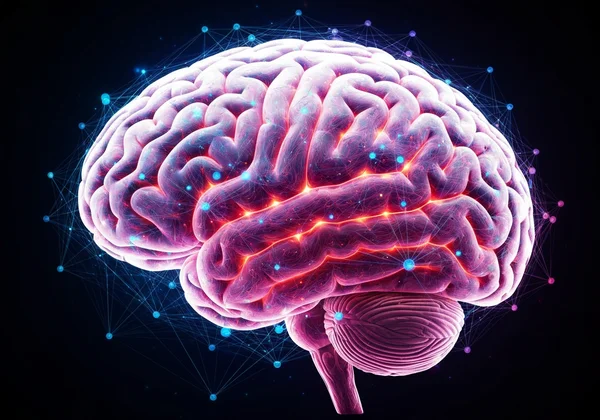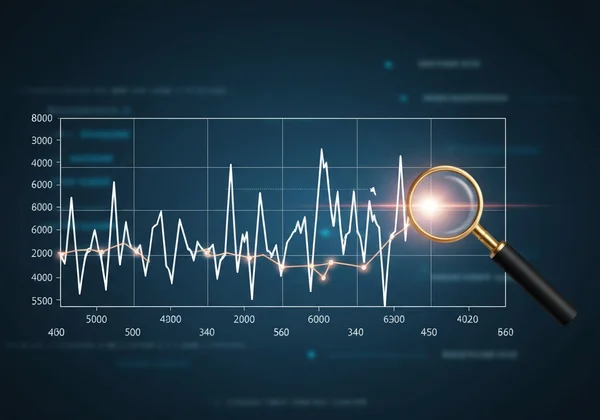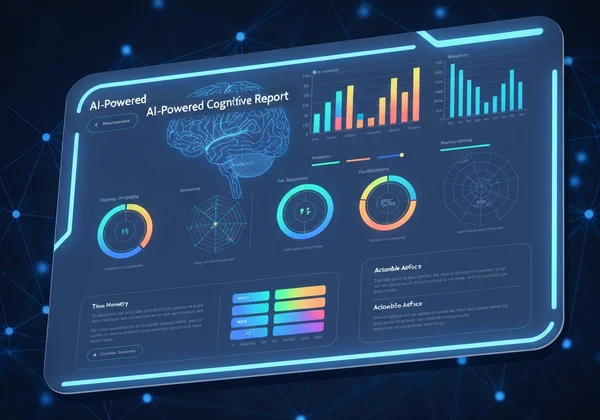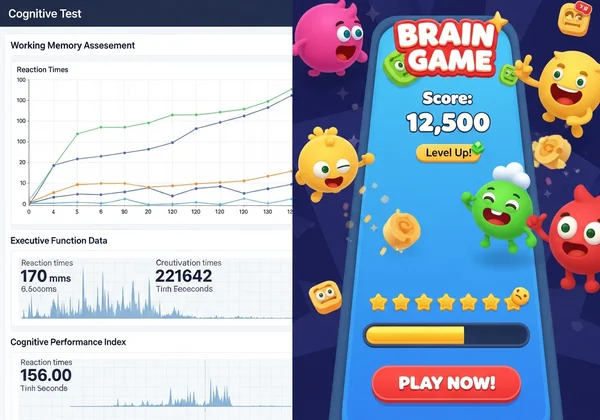Cognitive Baseline: Track Your Brain Health Over Time
November 13, 2025 | By Audrey Fletcher
Imagine having a personal map of your brain's unique abilities—a clear snapshot of its "normal." We diligently track metrics like blood pressure and cholesterol for our physical health, but what about our cognitive health? Establishing a cognitive baseline is one of the most powerful steps you can take for proactive, long-term brain care. How can I test my cognition and create this essential benchmark? This article will explore why creating this baseline is a crucial investment in your future well-being and how you can get started today.
Understanding your personal baseline empowers you to notice subtle shifts, celebrate your cognitive strengths, and address potential challenges with confidence. It’s about moving from reactive worry to proactive wellness. Our platform provides the scientific tools to help you create this map, putting the power of insight directly into your hands. You can start your free test and begin your journey toward a deeper understanding of your brain's health.
What Exactly is a Cognitive Baseline?
A cognitive baseline is a detailed, personalized snapshot of your cognitive functions at a specific point in time. Think of it as your brain's unique fingerprint. It's not about achieving a "perfect" score or comparing yourself to a generic standard. Instead, it’s a comprehensive measurement of your performance across a wide range of mental skills, including memory, attention, reasoning, and processing speed.

This initial assessment serves as a reference point. By understanding your typical performance levels, you create a benchmark against which all future changes can be measured. This context is vital because it helps distinguish between normal, everyday fluctuations in performance—like feeling a bit foggy after a poor night's sleep—and more significant trends that may warrant attention. It transforms abstract concerns about your memory into concrete, actionable data about your personal cognitive health.
More Than Just a Score: Understanding Your Unique Cognitive Profile
Your brain is incredibly complex, and a single number could never capture its full capabilities. A true individual cognitive profile goes far beyond a simple pass/fail score. It provides a nuanced view of your specific cognitive landscape, highlighting both your natural strengths and areas that might be more challenging for you.
For example, you might have exceptional long-term memory but find that your short-term attention wavers under pressure. Or perhaps your reasoning skills are razor-sharp, but your processing speed isn't what it used to be. A detailed baseline reveals this intricate pattern. Our comprehensive assessment evaluates 22 core cognitive skills to provide this holistic view, helping you appreciate the multifaceted nature of your own mind. Understanding this profile is the first step in nurturing your cognitive well-being.
Why Normal Fluctuations Are Key to Monitoring Brain Health
Our cognitive abilities aren't static; they naturally ebb and flow. Factors like stress, sleep quality, diet, and even mood can cause temporary dips or boosts in our mental performance. Without a baseline, it's easy to become anxious over these minor changes, mistaking a temporary "off day" for a serious problem.
This is where monitoring your cognitive function against a baseline becomes invaluable. By having a clear reference point, you can identify what constitutes a normal fluctuation for you. When you see a change, you can ask informed questions: Was I particularly stressed this week? Did I get enough sleep? This context helps reduce anxiety and allows you to focus on meaningful patterns over time. It’s this long-term tracking that provides the most powerful insights into your brain health.
Why Establish Your Cognitive Baseline Today?
In a world focused on preventative health, taking a proactive cognitive assessment is one of the most forward-thinking decisions you can make. Waiting until you notice significant changes to assess your cognitive health is like waiting for a car engine to fail before checking the oil. Establishing your baseline now, while you feel well, provides a clear and reliable picture of your brain in its typical state.
This proactive approach shifts the narrative from fear to empowerment. It gives you the agency to understand your cognitive health on your own terms and provides a powerful tool for conversations with healthcare providers. Instead of relying on vague feelings or anecdotal evidence, you'll have objective data to guide your health journey. It’s a simple yet profound step toward taking control of your cognitive future.
Empowering Early Detection and Intervention
One of the most significant benefits of having a cognitive baseline is its role in identifying the early signs of potential issues. Many cognitive conditions, including mild cognitive impairment and dementia, develop gradually over years. The initial changes can be incredibly subtle and easily dismissed as normal aging.
However, when you track your cognitive performance against an established baseline, these subtle shifts become more apparent. A consistent downward trend in a specific cognitive area, measured over time, provides a much clearer signal than memory alone. This early awareness can be crucial. It allows you to seek professional medical advice sooner, enabling timely intervention and better management of your health. You can get your report today to begin this important process.

Personalized Insights for Your Brain's Strengths and Challenges
A comprehensive cognitive baseline does more than just screen for problems; it illuminates your unique mental architecture. It provides personalized insights into your cognitive strengths and weaknesses, helping you understand how your brain works best. This self-knowledge is empowering and can be applied to many aspects of your daily life.
By identifying your cognitive strengths, you can learn to leverage them more effectively at work, in hobbies, and in social interactions. Conversely, understanding your challenges allows you to develop compensatory strategies or focus on targeted exercises to support those skills. Whether it’s improving your focus for a big project or finding better ways to remember names, this personalized data helps you optimize your individual brain health and live more effectively.
How Our Platform Helps You Track Cognitive Health Over Time
Monitoring your cognitive health shouldn't be complicated or inaccessible. That's why our platform was developed—to provide a scientifically rigorous yet user-friendly platform for brain health monitoring. Our online tool is designed to make establishing and tracking your cognitive baseline a seamless experience.
Built by a team of neuropsychologists, data scientists, and educational experts, our assessment is grounded in established scientific principles. We don't use gamified puzzles with vague results. Instead, we provide a structured evaluation that delivers clear, reliable, and actionable insights. This allows you to consistently monitor your cognitive health from the comfort of your own home. Explore your cognition and see how easy it can be.
A Comprehensive View: Assessing 22 Core Cognitive Skills
To create a truly meaningful baseline, an assessment must be thorough. A test that only measures memory or attention misses the bigger picture. Our platform provides a holistic cognitive view by evaluating 22 cognitive skills across key domains, including memory, attention, reasoning, and coordination.
This comprehensive approach ensures that your cognitive profile is detailed and nuanced. It captures the intricate interplay between different abilities, providing a much richer understanding of your brain's overall function than single-skill tests. This depth is what makes the baseline so valuable for long-term tracking, as it can pinpoint changes in very specific areas of cognition.
AI-Powered Reports for Actionable, Easy-to-Understand Insights
Raw data can be overwhelming and difficult to interpret. Our platform bridges this gap with our unique AI enhanced insight. After you complete the assessment, our advanced AI analyzes your performance, generating a personalized report that is both comprehensive and easy to understand.

This report translates your results into clear explanations, highlighting your cognitive strengths and potential challenges. It explains what each cognitive skill means and how it impacts your daily life. Most importantly, it provides actionable advice for nurturing your brain health. This blend of scientific rigor and AI-powered simplicity makes your cognitive data meaningful and useful.
Seamless Usability for Consistent Longitudinal Tracking
The key to effective brain health monitoring is consistency. A tool is only useful if you can use it easily and regularly over time. We've designed our platform with unmatched usability to ensure a smooth and stress-free experience for everyone, regardless of their technical expertise.
The test is straightforward, the instructions are clear, and the entire process takes about 30-40 minutes. This makes it a practical and accessible cognitive test to incorporate into your regular health routine. By making longitudinal tracking simple, we empower you to gather valuable data over months and years, providing the clearest possible picture of your cognitive journey. Ready to begin? Establish your baseline now.
When and How Often to Re-Assess Your Cognitive Baseline
Once you've established your initial cognitive baseline, the next step is periodic re-assessment. But how often should you re-test? There isn't a single answer for everyone, but there are general guidelines and key moments when checking in on your cognitive health is particularly wise.
For most healthy adults, re-assessing every one to two years is a good rhythm for proactive monitoring. This frequency is often enough to detect meaningful trends without causing unnecessary anxiety over short-term fluctuations. However, certain life events or health changes may prompt you to re-assess sooner. Consistent tracking is the cornerstone of preventative cognitive care.
Key Life Milestones and Health Changes
Certain events can have a significant impact on your cognitive health. It’s a good idea to consider re-testing after major life milestones or changes in your health status. This helps you understand the aging and cognition process or the effects of specific circumstances.
Consider re-assessing your baseline after events such as:
- A major surgery, especially one involving general anesthesia.
- The diagnosis of a new chronic condition, like diabetes or heart disease.
- A significant head injury or neurological event.
- Starting a new medication known to affect cognition.
- Substantial lifestyle changes, such as retirement or a period of intense, prolonged stress.
Tracking your cognition around these events can provide valuable information for you and your healthcare provider.
The Power of Consistent Monitoring for Preventative Care
Ultimately, the greatest benefit comes from consistent, long-term monitoring. Regular check-ins create a rich dataset that tells the story of your brain health over time. This approach to preventative care allows you to see the big picture and understand the long-term impact of your lifestyle choices on your cognitive wellness.
![]()
This ongoing process helps normalize the conversation around cognitive health, making it a regular part of your wellness routine, just like an annual physical. It empowers you with knowledge, reduces uncertainty, and equips you to be the most effective advocate for your own brain health throughout your life. The journey begins with a single step, and you can take our assessment to start today.
Take Control of Your Cognitive Journey: Establish Your Baseline
Your cognitive health is one of your most precious assets. Taking proactive steps to understand and protect it is an investment that pays dividends for a lifetime. Establishing your cognitive baseline is the foundational step in this journey, transforming ambiguity and worry into clarity and empowerment. It provides you with a personalized roadmap to your unique cognitive world.
Don't wait to prioritize your brain health. With our services, you have access to a scientifically validated, comprehensive, and user-friendly tool designed to give you the insights you need.
Ready to begin? Visit our homepage to take your free cognitive test and establish your personal baseline today.
Frequently Asked Questions About Cognitive Baselines
What is a good cognitive test score?
This is a common question, but it's important to shift the focus from a "good" score to a "personal" score. A cognitive baseline isn't about passing or failing. Its value lies in establishing your unique normal. A good score is one that accurately reflects your abilities at a given time, serving as a reliable benchmark for future comparisons. Our reports focus on your individual profile of strengths and weaknesses rather than a single, judgmental number.
Can I take a cognitive test online for free?
Yes, you can. We offer a comprehensive free cognitive test that allows you to establish your baseline without any cost. Our mission is to make high-quality cognitive assessment accessible to everyone. After completing the test, you will receive an instant summary of your performance. For a more detailed analysis, you can opt for our AI-powered report, which provides deeper, personalized insights.
How difficult is a cognitive test?
A well-designed cognitive test should be challenging but not overwhelming. The tasks are created to measure the limits of your performance across different skills, so you can expect some tasks to feel easier and others more difficult. This is intentional. The goal is to get an accurate measurement of your abilities. Our platform provides clear instructions for each task to ensure you can perform at your best.
What if my cognitive baseline score changes over time?
Change is a normal part of the cognitive aging process. Small fluctuations are expected. If you notice a consistent downward trend in one or more areas over several assessments, it’s a good idea to share this information with a healthcare professional. Your baseline data can be an incredibly valuable tool in these conversations, providing objective information to help guide their evaluation. Start your journey here.
How is our cognitive test different from free brain games?
This is a critical distinction. While brain games can be fun and engaging, they are not designed as standardized assessment tools. Their difficulty often changes, they rarely measure performance consistently, and they don't compare your results to a large, age-matched dataset. Our assessment is a scientifically validated instrument based on principles from established neuropsychological tests. It provides a structured, reliable, and comprehensive assessment of 22 cognitive skills to give you a true holistic cognitive view.
